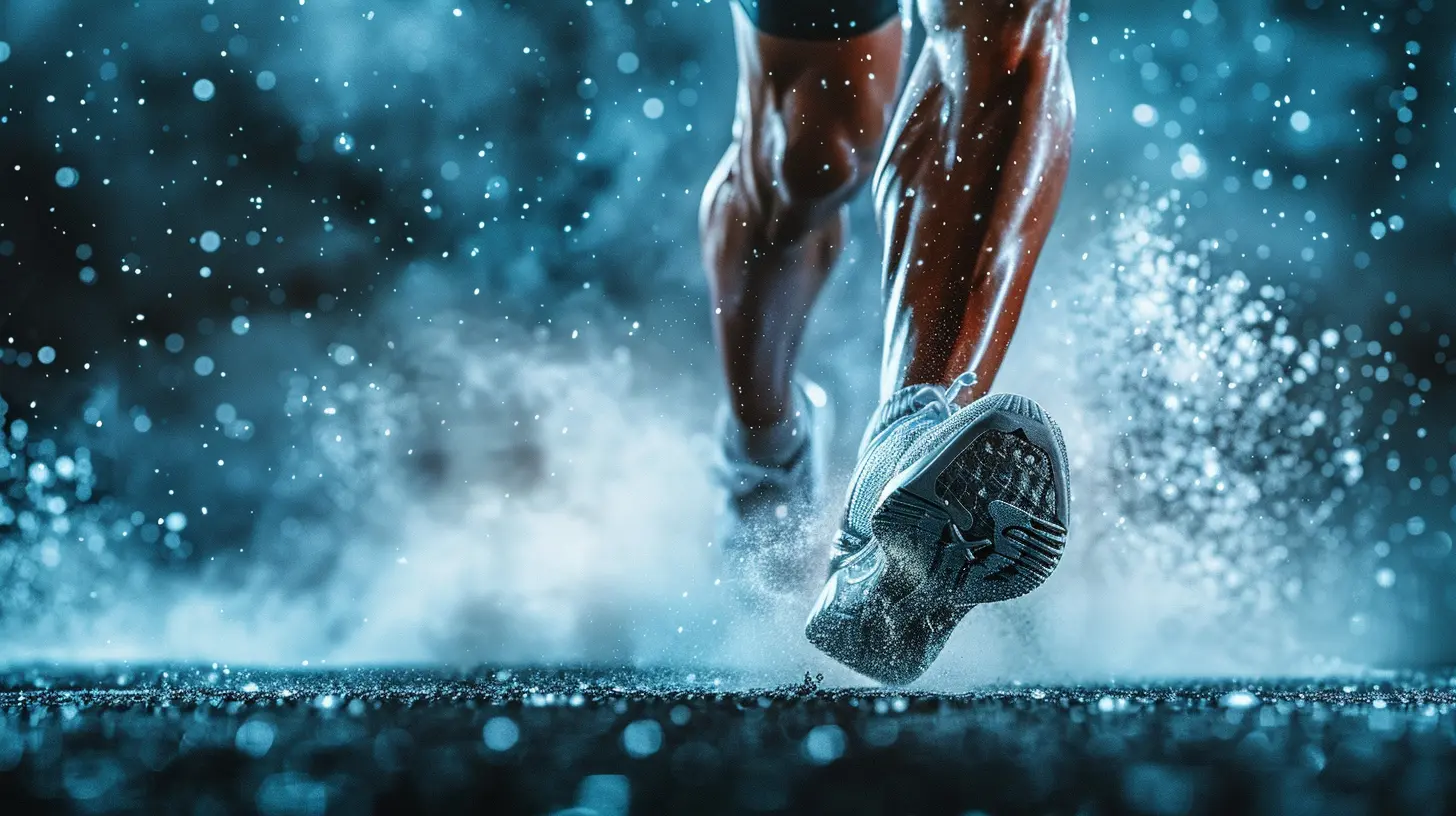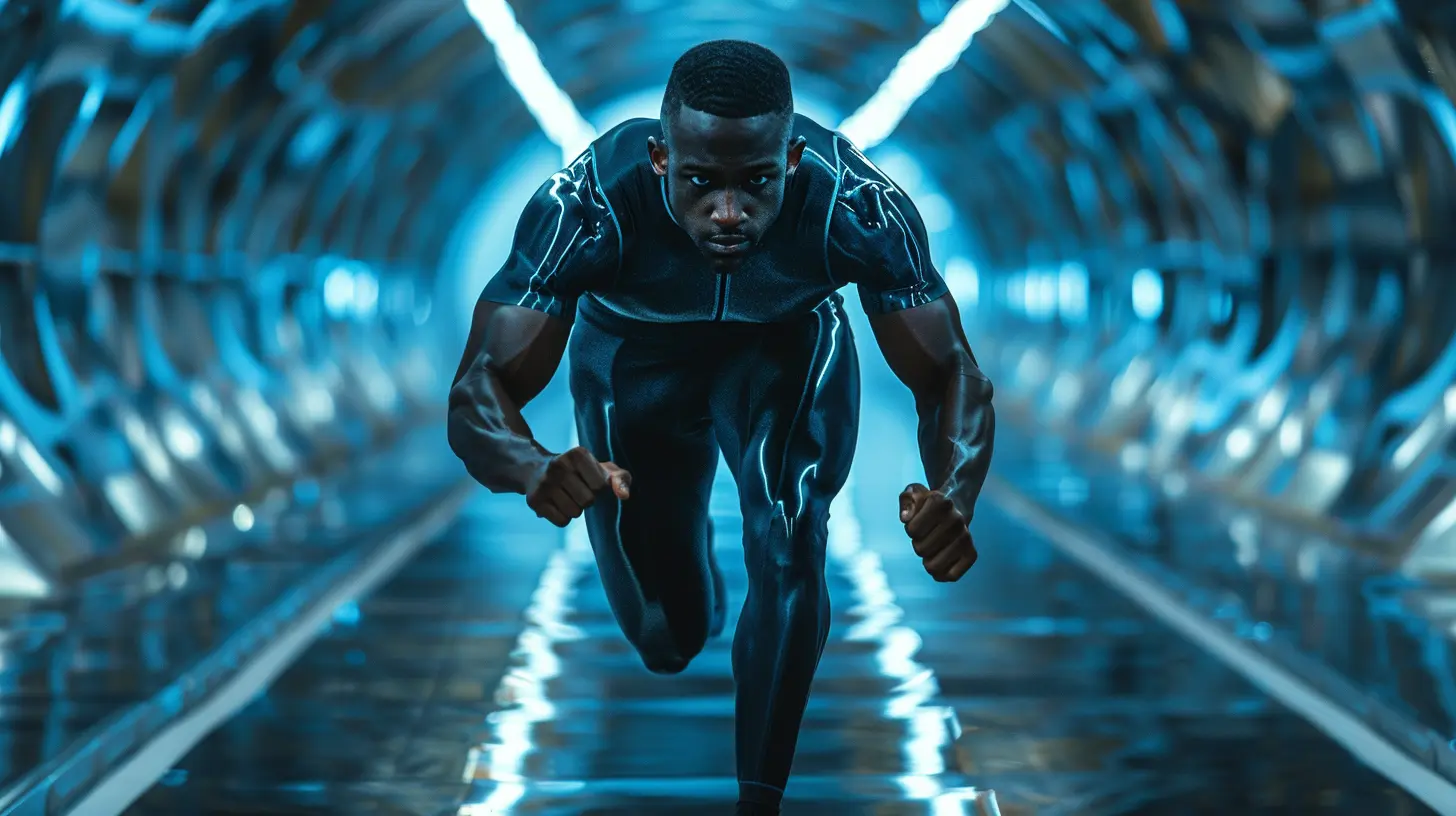The Science Behind Peak Athletic Performance: Understanding Human Limits
18 October 2025
When you watch a sprinter blaze down the track, a gymnast defy gravity with ease, or a marathoner push through mile 25 like it's a jog in the park — have you ever wondered, how do they do that? What sets elite athletes apart? What does it really take to perform at the edge of human possibility?
Well, guess what? It's not magic — it’s science.
In this post, we’re going to crack open the playbook of peak athletic performance. We’ll dig into what the body can do when pushed to its limits, how the brain plays a role, and what separates elite athletes from the rest of us. Get comfy, because we’re diving deep.
What Exactly Is Peak Performance?
Let’s start with the basics. "Peak athletic performance" isn’t a one-size-fits-all concept. It’s the optimal state when an athlete performs their absolute best — physically, mentally, emotionally. But it’s not just running faster or jumping higher.It’s about:
- Pushing your body without breaking it.
- Tapping into the mind to silence doubt and distraction.
- Timing, precision, and physiological fine-tuning.
Think of it like tuning a high-performance sports car. Every component — the engine, tires, suspension — has to work in harmony. For athletes, those components are strength, endurance, agility, recovery, mindset, and more.
Genetics: The Starting Line
Let’s be real: some people are just built different. Genetics can offer a head start. But before you roll your eyes and say, “Well, I’m doomed,” hear me out.Yes, genes influence muscle fiber types (fast-twitch vs. slow-twitch), oxygen uptake, and natural hormone levels. Ever wonder why sprinters have explosive speed or why some guys can run forever? That’s partly genetic.
But genes are only the starting blocks. They don’t determine the finish line.
Training, nutrition, mindset, and recovery can unlock potential even genetics can't predict. Think of genetics as the soil. You still have to plant, water, and care for what grows.
Strength, Power, and Endurance: Building the Machine
Strength and Power
Let’s talk muscles. Strength is your ability to move weight. Power is strength + speed. Athletes train both because performance depends on it.Sprinters? They need explosive power. Weightlifters? They need maximum strength. But even a basketball player relies on burst movements.
Training methods like resistance training, plyometrics, and Olympic lifts are the bricks and mortar of performance. They break muscles down to build them back stronger.
Endurance and Cardiovascular Health
Now, here’s where the science gets juicy. Endurance isn’t just about heart and lungs — it’s about your mitochondria, the powerhouses of your cells.Endurance athletes train to increase:
- VO2 max (how efficiently your body uses oxygen)
- Lactate threshold (how much effort you can sustain before burning out)
- Capillary density (how well oxygen gets delivered to muscles)
The result? A body that performs like a hybrid engine — powerful and fuel-efficient.
Nutrition: The Fuel for Excellence
Ever heard the phrase, “You can't out-train a bad diet”? Athletes eat with purpose because food is fuel. It’s also medicine.Macro and Micro Matters
- Carbs replenish glycogen — the primary energy source for performance.- Proteins repair and rebuild muscles after grueling workouts.
- Fats support hormone health and longer energy supply.
- Micronutrients (think iron, calcium, magnesium) keep everything running under the hood.
Timing also matters. Pre-workout meals prep the body. Post-workout shakes aid recovery. Even hydration can make or break a workout.
Bottom line: fueling like an athlete is a science — and it’s a game-changer.
The Brain-Body Connection: Mind Over Muscle
Here’s a truth that doesn’t get enough love — your brain runs the show.Elite athletes train their minds as much as their muscles. Ever heard of the “central governor theory”? It suggests the brain limits performance to protect the body from harm.
That means fatigue isn’t always physical — it’s psychological.
Mental Techniques Used by Champions:
- Visualization: Seeing success before it happens.- Self-Talk: Shutting down doubt with power phrases.
- Focus Training: Ignoring distractions (even the crowd’s roar).
- Mindfulness and Meditation: Staying present under pressure.
Your mindset can be the spark that lights the fire — or the fog that kills it.
Recovery: The Secret Weapon
Here’s where many people drop the ball. Recovery isn’t a luxury — it’s part of training.Without it, you don’t grow. You just break down.
What Does Recovery Look Like?
- Sleep: Nothing beats 8 hours of deep, uninterrupted sleep. It's when muscles repair and hormones rebalance.- Active Recovery: Light movement that increases blood flow and helps flush lactic acid.
- Massage, foam rolling, and stretching: All reduce soreness, improve mobility, and keep the body primed.
- Cold therapy and saunas: Boost circulation and reduce inflammation.
- Periodization training: Structured rest within training blocks keeps athletes fresh.
Recovery is like charging your phone. No juice? No performance.
Altitude, Heat, and Environment: The Body’s Adaptation Powers
Ever noticed how elite athletes often train at high altitudes? There’s a reason.At high altitudes, there’s less oxygen. So your body freaks out (a little) and produces more red blood cells to carry what little oxygen is available. When you return to sea level — boom — your oxygen-carrying capacity is through the roof.
Same story with training in hot environments — it forces the body to sweat earlier and store less heat, which improves cooling.
The human body is incredibly adaptive. Push it in the right way, and it levels up.
Technology and Data: The Modern Performance Edge
We live in the era of wearable tech and data-driven sports science. And yep, elite athletes use this stuff aggressively.Popular Tools and Metrics:
- Heart Rate Monitors: Optimize training zones.- GPS Trackers: Analyze movement, distance, and pace.
- Sleep Trackers: Monitor rest and recovery.
- Force Plates and Motion Sensors: Improve technique and reduce injury risk.
With data, nothing is left to guesswork. It’s like having a coach in your pocket.
Pushing Human Limits: Are We There Yet?
So, back to the big question — just how far can humans go?We’ve seen marathon times drop under the 2-hour mark (albeit with pacing strategies and gear). Olympic records are still being shattered. Every year, someone does the "impossible."
But even science says there’s a limit. Our muscles can only contract so fast. Our lungs only hold so much. Our hearts can only beat so many times per minute.
Yet, we keep inching closer to those limits. Through smarter training, better recovery, focused mindset, and — let’s be honest — sheer willpower.
So, Can YOU Reach Peak Performance?
Absolutely.You don’t have to chase Olympic gold to pursue your peak. It’s about testing your own limits, becoming stronger, faster, more focused — whatever that looks like for you.
Train smart. Recover right. Feed your body. Sharpen your mind. And keep showing up.
Remember, greatness isn’t born — it’s built. And science is your blueprint.
Final Thoughts
Peak athletic performance isn’t reserved for the genetically gifted or the professional elite. It’s a blend of biology, psychology, consistent effort, and smart strategies. Every push, every rep, every smart choice brings you closer to your own personal best.So next time you hit the gym, lace up your running shoes, or step onto the field — remember: your body is more powerful than you think. Train it, fuel it, believe in it — and watch what happens.
all images in this post were generated using AI tools
Category:
Sports ScienceAuthor:

Nelson Bryant
Discussion
rate this article
1 comments
Zeal Sawyer
What an inspiring read! It's fascinating to explore how science unlocks human potential in sports. Understanding our limits helps athletes push boundaries and achieve greatness. Can't wait to see the incredible feats that will come next! Keep reaching for the stars! 🌟🏆
October 25, 2025 at 8:57 PM

Nelson Bryant
Thank you! I'm glad you found it inspiring. It's exciting to see how science continues to elevate athletic performance! 🌟


